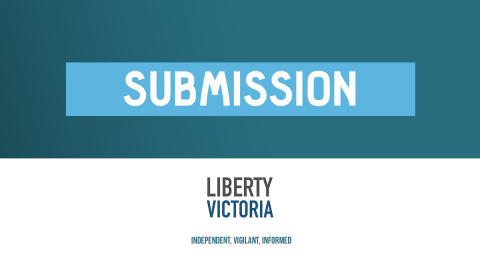Civil Society Submission to Surveillance Law Reform

The Australian Privacy Foundation, Queensland Council of Civil Liberties and Liberty Victoria have made a detailed submission to the Reform of Australia’s electronic surveillance framework discussion paper.
We recognise the importance of ensuring security of Australians’ and their freedoms. The rationale for national security law comes from the importance of ensuring that freedoms are protected. We are concerned to ensure that the ‘forest isn’t lost for the trees’ in this reform process and that the guiding and predominant principle in this reform is that our national security framework serves to protect the freedoms that ought to be enjoyed by all Australians.
Key points from the submission (please see here for complete details):
- Time for Consultation with Experts, Stakeholders and the Community
The timeframe for introduction of a Bill repealing the Telecommunications (Interception and Access) Act 1979 (“the TIA”), the Surveillance Devices Act 2004 (“the SD Act”) and aspects of the Australian Security Intelligence Organisation Act 1979 Act (“the ASIO Act”) be delayed by at least twelve (12) months to allow for consultation with experts, stakeholders and the community.
- Compliant with Human Rights
The objects of a simplified Act ought to be coupled with clear requirements that the use of national security and surveillance powers are expressly balanced with Australia’s obligations pursuant to international human rights law.
- Warrants and Judicial Oversight
Warrants for access to information should only be authorised by the Federal Court of Australia or a Supreme Court of a State or Territory.
- Decision Records of Judicial Authorisation
A redacted form of judicial decision records for the issue of warrants ought to be published. Transparency, accountability and oversight of the operation of warrants is possible by publicizing the legal principles (rather than the specific facts) of warrants issued and would enhance public confidence in the oversight of such Australia’s electronic surveillance regime.
- Revised Definition of ‘Communication’
A simplified definition of communication could be introduced as “any exchange or record of information in any form between two or more locations”. This would ensure that the definition of ‘communication’ is widened, simplified and technology neutral. This definition of communication would only be acceptable with an enhanced focused on the protection of human rights and with judicial oversight and increased reporting obligations.
Media Contacts:
Monique Mann
Australian Privacy Foundation & Liberty Victoria
0475 348 700
vicechair2@privacy.org.au
Angus Murry
Queensland Council for Civil Liberties
0405 715 427
